Unique is an often abused term in the world of jewellery, where a much-admired piece may be repeated or replicated by the maker, or even copied by another party.
Leading Melbourne contemporary jewellery store e.g.etal has curated an exhibition of jewellers whose works are indeed unique, because of the processes and techniques used in the making which guarantee that no two works can ever be the same.
Inimitable, a curated collection by six artists, will be on display at e.g.etal, 167 Flinders Lane Melbourne, from 13 November. Jewellery that makes the perfect Christmas present, a work of art that can never be repeated.
Inimitable will feature work by the following artists:
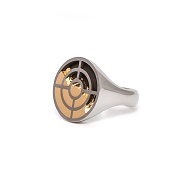 Carl Noonan, e.g.etal
Carl Noonan, e.g.etal
Carl Noonan
Carl Noonan creates rings by casting precious metals into a titanium skeleton. The metal appears to float and pool inside the ring, marked by a jagged transition into negative space.
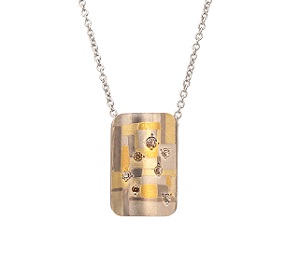 Julia Storey, e.g.etal
Julia Storey, e.g.etal
Julia Storey
Julia Storey fuses layers of gold to produce a patchwork of metal reminiscent of a Klimt painting, or an aerial landscape.
Welfe Bowyer, e.g.etal
Welfe Bowyer
Welfe Bowyer employs an experimental double casting method that fuses metals together without solder, highlighting the material differences within the object.
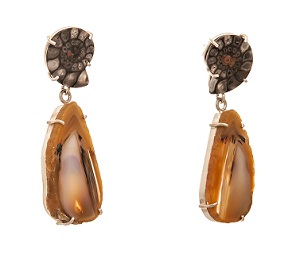 Anita Crowther, e.g.etal
Anita Crowther, e.g.etal
Anita Crowther
Anita Crowther cuts and polishes all her own stones and minerals, allowing the unpredictability of what is revealed in her cuts to dictate her finished work.
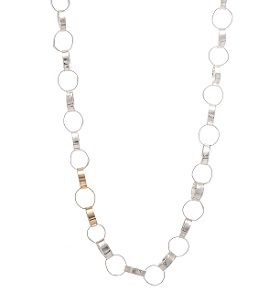 Vikki Kassioras, e.g.etal
Vikki Kassioras, e.g.etal
Vikki Kassioras
Vikki Kassioras creates chains that are hand-fused. Each strip of metal is rounded into a link and heated carefully to meld the silver together, like a child making a paper chain. This process can only be controlled to a certain extent, so every chain and every link is different.
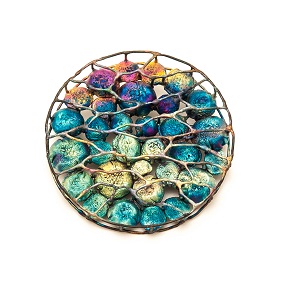 Jill Hermans, e.g.etal
Jill Hermans, e.g.etal
Jill Hermans
Jill Hermans uses a copper-silver metal alloy called shibuichi. As the artist heats the metal with a blowtorch, vivid and unpredictable colours are created. The effect varies depending on the intensity of the heat and the time taken.
e.g.etal director, Emma Goodsir, says each of the artists uses processes and techniques that introduce an element of randomness and chance that ensures each piece is truly one of a kind.
“In each case, the artist is taking a chance. The skilled hand of a jeweller will steward the piece, but at a certain point, fate will take over. An element of intentional randomness will dictate how the piece turns out. The process is as important as the end result.
“In this era of everything being replicated at a global level, these artists are creating work that is deliberately unpredictable. Because even the artist doesn’t have complete control over the work, there is no way it can be mass produced or replicated. As a result, the purchaser of these exceptional pieces can be assured they own a work of art that can never be repeated.
“This is the kind of jewellery I am passionate about supporting. When considering artists to be represented at e.g.etal, I like to look beyond whether the work is simply beautiful – I seek that spark of the unpredictable.
“In fact, it’s that relinquishment of control brought about by a particular process or technique that can make the artists’ work truly inimitable,” Ms Goodsir said.